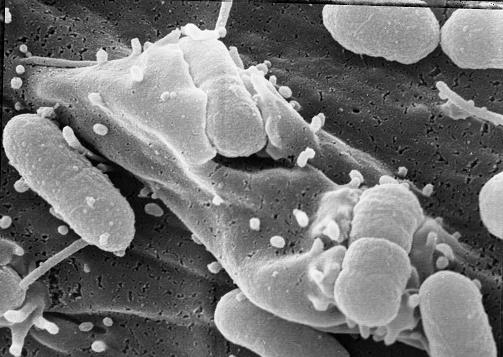Researchers at the Hebrew University discovered that the 'h-syringe' operated by the bacteria is an excellent potential target for future antibiotic drugs to combat diseases caused by toxins

Researchers at the Hebrew University report a research breakthrough in monitoring the toxin transport system of disease-causing bacteria. This achievement may pave the way for new drugs that can neutralize these bacteria.
Most bacteria are harmless and do not cause infection. However, some of them cause diseases and are equipped with special accessories used to transport toxins to the cells of the infected person.
Many bacteria that cause diseases, from food poisoning to fatal infection, activate a syringe-like nano-organ (a part of a cell with a specific function) that is used to inject toxic substances into the attacked body cells. This organ is called the type 3 excretory system. These bacteria include: Salmonella, which causes typhoid fever; Yersinia, the cause of the disease; and the intestinal bacterium Escherichia coli, which is responsible for the death of up to a million toddlers each year, most of them in developing countries.
The bacterial syringe operated by the bacteria is an excellent potential target for antibiotic drugs (not yet available) to fight these diseases. To develop drugs such as these, a better understanding of the injector's functions and the development of better methods for measuring the injector's activity are required.
Hebrew University researchers - Prof. Ilan Rosenshein from the Faculty of Medicine at the Hebrew University, and his colleagues: Erez Mills, Kobi Baruch, Javier Charpentier and Simi Kobi - have developed a test that allows monitoring the activity of the syringe in real time. In this test, the researchers discovered new features in the system that may be used to develop drugs that will suppress the activity of the syringe and thereby prevent diseases and infections caused by dangerous bacteria.
This achievement was described in an article recently published in the journal Cell Host & Microbe.
